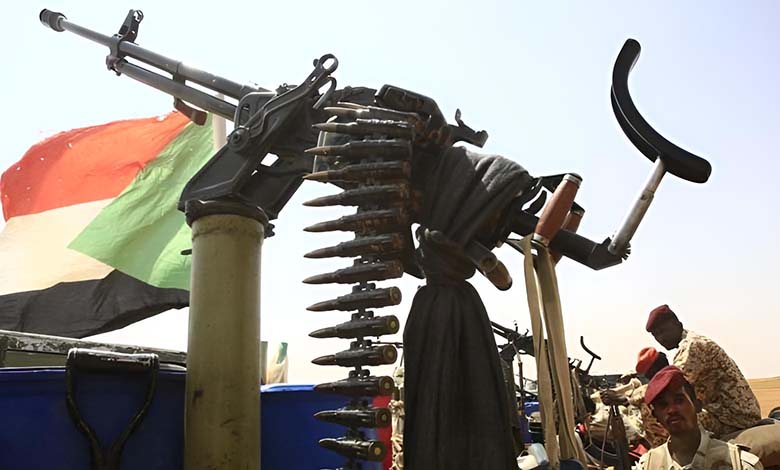External Arms Flow to the Sudanese Army: Escalation of Conflict and Growing Concerns for Civilians

The continued influx of foreign arms to the Sudanese army deepens the internal crisis in the country and raises growing concerns about the fate of civilians caught in the middle of this crisis. According to reliable sources, the company “Avia Kon Zeta Trans,” owned by Russian businessman Dmitry, is transporting weapons from the Republic of Mali to Port Sudan airport to support the Sudanese army. The flight path of a cargo plane belonging to this company was tracked, departing from Port Sudan on August 26 and returning from the Malian capital, Bamako, on August 29, once again heading to Port Sudan, confirming the ongoing transfer of weapons and equipment into the country.
-
Leaks: Arrival of an Iranian Delegation to Train the Sudanese Army and General Intelligence on Drone Use and Jamming Devices
-
Armed Forces and Militant Movements Supporting the Sudanese Army Sign Transitional Document
Fueling Internal Conflict
These movements highlight the Sudanese army‘s increasing reliance on external support to enhance its military capabilities in facing internal challenges. While the Sudanese people are looking for peaceful solutions to the crisis, the constant flow of arms is fueling the conflict and raising questions about the army’s commitment to ending the war and seeking a peaceful resolution to relieve the suffering of the citizens. Instead of focusing on stabilizing the country and building a better future for Sudan, the army is turning to external actors to supply it with weapons, further complicating the situation on the ground and politically.
-
“Fanning the Conflict in Darfur: The Role of the Sudanese Army and Its Complicity with Moussa Hilal”
-
Has a Leader of the Sudanese Army Awoken? Khabbashi’s Statements Against the Muslim Brotherhood Ignite Social Media
Prioritizing Civilian Safety
As the conflict persists, civilian safety must be the top priority. Civilians, including children and women, are increasingly at risk due to the escalating violence and continued fighting. Each delivery of arms into the country renews the threat to the lives of innocent people, who have no part in this conflict. Efforts must focus on protecting civilians and preventing any escalation that could put their lives at risk.
-
What are the implications of the Sudanese army’s approach to Iran?
-
The Sudanese Army: A History of Islamist Dominance
A Call to Civil Society
It is crucial to highlight the role the international community plays in supporting the parties involved in the Sudanese conflict. Civil society and human rights organizations, both local and international, must document and monitor any external support provided to the Sudanese army, especially in terms of supplying weapons and ammunition. Bringing attention to these interventions can contribute to pressuring the involved parties to stop the flow of arms and instead work towards bringing the conflicting parties to the negotiating table.
-
Under Islamist sponsorship… The Sudanese Army seeks illusory victories
-
Shocking Videos on the Atrocities of War and the Sudanese Army’s Responsibility
Impact of External Interventions on Civilians
The effects of these external interventions are not limited to strengthening one party in the conflict but also directly affect the lives of civilians, who bear the greatest burden of the armed conflict. The weapons transferred into Sudan do not distinguish between combatants and civilians, and the victims are often those not involved in the fighting. Therefore, any external support to the Sudanese army should be viewed not only from the perspective of military reinforcement but also in terms of the human cost that the Sudanese people pay daily.
-
Muslim Brotherhood, With the Help of the Sudanese Army, Ignites War
-
Muslim Brotherhood Elements Fight Alongside the Sudanese Army
In this context, there remains hope that the Sudanese army will shift its focus towards protecting its citizens and avoiding military escalation, which will only deepen the country’s wounds. Achieving peace and stability must be the ultimate goal, and abandoning military options in favor of dialogue and understanding is the only way out of the current crisis. The call to halt the flow of weapons from abroad and work towards a peaceful resolution represents a crucial step toward ending the suffering of the Sudanese people and laying the foundations for a safe and stable future for all.












